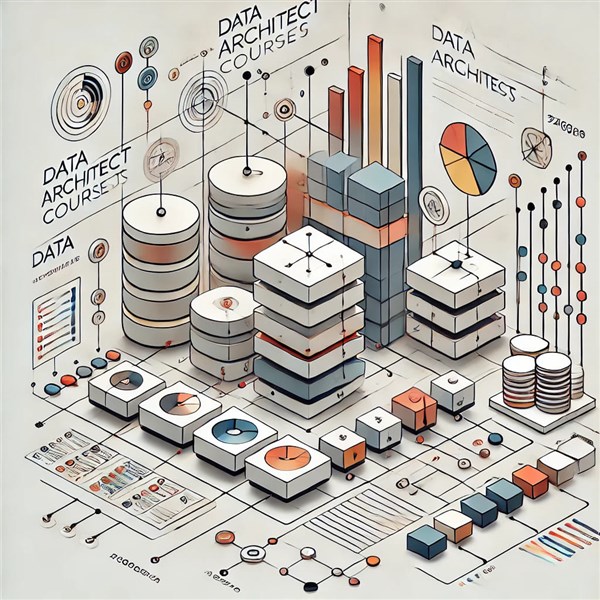Unable to find what you're searching for?
We're here to help you find it
In today’s data-driven landscape, the role of a data architect is becoming increasingly critical. A data architect is responsible for designing, creating, and maintaining the data infrastructure that organizations rely on to make informed decisions. To excel in this role, professionals must be equipped with a comprehensive set of skills, particularly in programming languages and tools. This blog delves into the top programming languages and tools covered in data architect courses that are essential for success in this field.
Before we dive into the specifics of programming languages and tools, it’s important to understand what a data architect does. Data architects design data systems and structures that allow organizations to collect, store, and analyze data effectively. They work closely with data scientists, analysts, and IT teams to ensure that the data infrastructure aligns with business goals. Their responsibilities often include:
With these responsibilities in mind, let’s explore the programming languages and tools that are essential for data architects.
SQL is the foundational programming language for managing and manipulating relational databases. As a data architect, you will frequently work with SQL to:
Courses in data architecture often include extensive training in SQL, as it is crucial for anyone working with data.
Python is a versatile programming language widely used in data analysis, machine learning, and data manipulation. As a data architect, Python can be valuable for:
Many data architect courses will cover Python, particularly in relation to data processing and automation tasks.
R is another popular programming language, especially in statistical computing and data analysis. While it is not as widely used for database management as SQL, R is essential for data architects who focus on data analytics. Its benefits include:
Data architect courses that emphasize analytics often include training in R to help professionals understand data from a statistical perspective.
Java is a robust programming language often used in large-scale applications and big data environments. For data architects, Java can be particularly useful for:
Courses focusing on big data solutions will typically cover Java as part of the curriculum.
Hadoop is an open-source framework for distributed storage and processing of large datasets. Understanding Hadoop is critical for data architects involved in big data projects. Key components include:
Data architect courses often include hands-on training with Hadoop to prepare professionals for real-world big data challenges.
Spark is another powerful big data processing engine that works well with Hadoop. It provides an interface for programming entire clusters with implicit data parallelism and fault tolerance. Key features include:
Courses covering big data architecture will usually include training on Apache Spark, given its importance in the industry.
As organizations increasingly adopt flexible data models, knowledge of NoSQL databases becomes essential for data architects. Some popular NoSQL databases include:
Data architect courses often include modules on NoSQL databases to provide a well-rounded understanding of different data storage solutions.
Data warehousing tools are critical for consolidating data from various sources for analysis and reporting. Some key tools include:
Courses in data architecture frequently cover these tools, as they are essential for building effective data ecosystems.
Extract, Transform, Load (ETL) tools are vital for data integration processes. Understanding these tools is crucial for data architects involved in data migration and warehousing. Key ETL tools include:
Data architect courses will typically include training on ETL tools to help professionals effectively manage data workflows.
As businesses increasingly move to the cloud, knowledge of cloud platforms is essential for data architects. Key platforms include:
Data architect courses often cover cloud architecture and services, helping professionals design scalable and flexible data solutions.
Conclusion
The role of a data architect is multifaceted and requires a diverse set of skills in programming languages and tools. Data architect courses provide professionals with the knowledge and hands-on experience necessary to succeed in this dynamic field. From mastering SQL and Python to understanding big data frameworks like Hadoop and Spark, these courses equip aspiring data architects with the essential skills to design and manage data infrastructures effectively. As organizations continue to rely on data to drive decision-making, the demand for skilled data architects will only grow, making now the perfect time to invest in your education.
At Koenig Solutions, a leading IT training company, we offer comprehensive data architecture and data architect certification courses. Our programs are designed to equip you with the skills and knowledge necessary to thrive as a data architect in today's data-driven world. Get in touch with us today to find out more about our courses and how they can help you advance your career.

Aarav Goel has top education industry knowledge with 4 years of experience. Being a passionate blogger also does blogging on the technology niche.










